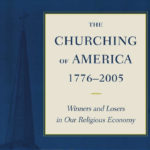This paper presents the need to review the theology of God’s call connected to missions and the rural church. The need for the church to observe the rural churches’ connection to the call can strengthen missions work to all ethne. In light of the decline of young rural ministers, this paper explores the biblical call for ministry engaging God’s mission (missio Dei) and observing calling in Acts 26:16-20; God continues to call Spirit-empowered believers to join His mission of reaching the lost from every ethne. Paul’s call demonstrates that God’s calling includes the purpose and the empowerment that summons believers to respond.
The exploration of Luke’s appeal to the church, considering the example of Paul’s call, strengthens the praxis of the Christ-centered call that launches Spirit-empowered workers into the harvest in and from rural communities. Incorporating Luke’s Spirit-empowered missio Dei call and response theme with rural churches, accomplishing the mission of Christ for every people group, becomes a rural impetus.[i] Tyra promoted the pneumatic missio Dei imperative, “…it must be acknowledged that Luke’s message overall seems to be that all Spirit-filled believers possess the capacity, like Ananias [and Paul], to hear God’s voice, receive ministry assignments, speak and act on Christ’s behalf, make new disciples, and build up the church, offering a powerful refutation of religious relativism in the process.”[ii] To mitigate the rural church crisis, God continues to call ministers to accomplish His mission in the rural communities, to turn them from darkness to the glorious light.
Jesus continues His universal call to invade the darkness with the gospel light in the rural and urban communities. Gene Edward encouraged believers that God’s call leads to places large and small, “Christians have the confidence that ‘all things work together for good, for those who are called according to his purpose’ (Rom. 8:28). Notice that this promise is tied to vocation (being ‘called’) and to God’s purpose, not our own.”[iii] The Holy Spirit works through believers to remedy a lack of missionary zeal, calling for radical transformation of people in rural and urban communities, healing blind eyes, setting free the bound, bringing the good news of sins forgiven and sanctification through faith in Christ. A biblical theology of the call, in view of Paul’s call and the rural church current condition, necessitates increased prayer, preaching, and teaching about responding to the Spirit-empowered missional call; encouraging people young and old, men and women, to respond to the Lord Jesus who called Saul on the road to Damascus and leaders for ministry today.
[i] Moltmann Jurgen Moltmann. The Church in Power of the Spirit. (New York, NY: Harper and Row Publishers, Inc. 1977), 10.
[ii] Tyra. 68.
[iii] Gene Veith, Edward, Jr. God at Work: Your Christian Vocation in All of Life. Wheaton, IL: Crossway Book.2002), 59. “Vocation is, in part, a function of the particular gifts God has given us; but we cannot know our vocation purely by looking inside ourselves. Our choices are constrained by givens that are outside our control. Neither are circumstances completely under our control. God, though, is in control of them all. While non-believers are trapped in their random, meaningless world, Christians have the confidence that ‘all things work together for good, for those who are called according to his purpose’ (Rom. 8:28).” This promise follows Paul’s admonition that Spirit helps us pray according to the will of God (Rom. 8:26-27).




















